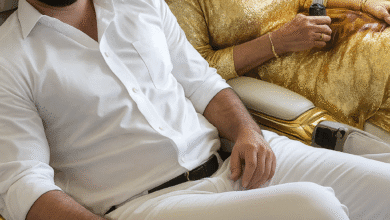I went to my first therapy session, and my therapist’s first words left me frozen with anger.

My name is Sarah, and I’ve never been the type to talk about my problems.
I kept everything bottled up inside—my emotions, my struggles—until the weight became too much.
Anxiety, panic attacks, the constant feeling of being trapped in my own head.
Eventually, I decided it was time to ask for help.
After doing some research, I booked my first session with Dr. Amelia Brooks.
Everyone said she was amazing—a therapist who truly listened.
I hoped this would be the turning point I needed.
The office was easy to find, tucked away on a quiet street.
The building gave off a neutral, peaceful vibe—a quiet promise of calm.
When I walked in, the receptionist greeted me with a smile, handed me a few forms, and pointed me to the waiting room.
It was cozy: soft chairs, a few magazines, gentle background music.
Still, I couldn’t shake off my nerves.
After what felt like forever, Dr. Brooks appeared with a warm smile.
“Sarah?” she asked.
I nodded nervously, and she said, “Please, come in,” guiding me to her office.
It was a comfortable space, with beige walls, plants in the corners, and soft lighting.
There were two armchairs—one for her, one for me.
I hesitated for a moment, then sat down, trying to relax.
She began by asking about my background, what brought me there, and what I was struggling with.
I opened up a little—about my anxiety, my work issues, my relationships, and the feeling of being lost.
Therapy, I’d been told, was supposed to be a safe space. And for a moment, it felt like it might be.
But then, things took an unexpected turn.
I had chosen a bold outfit for that session.
I didn’t know exactly what to expect from therapy, but I wanted to feel empowered.
I wore a fitted red blouse with a deep V-neck and a black leather skirt just above the knee.
It was sexy, confident—and I felt good in it.
It felt like the right choice to face my fears on my own terms.
While I was talking, I noticed Dr. Brooks suddenly stopped listening.
Her eyes drifted from my face to my clothes… then slowly to my legs.
I paused, confused.
I hadn’t expected her to stare at me like that.
“That’s an interesting choice of outfit,” she said slowly. Her voice was flat, but the tone was sharp.
It wasn’t a compliment.
Not even neutral.
It felt like I was being dissected—judged.
I froze.
“Excuse me?” I asked, blinking, unsure if I’d heard her correctly.
She raised an eyebrow.
“Well, it’s just… a bit distracting, don’t you think? For a therapy session? Maybe you should reconsider dressing so, uh, provocative—especially if you’re here to work through deep emotional issues. It doesn’t exactly send the right message.”
I felt the heat rise to my face.
I hadn’t expected a professional therapist to comment on my appearance—let alone in such a condescending way.
It felt like she was trying to embarrass me. To shame me.
I had chosen that outfit to feel strong, to take ownership of my story. And here she was, tearing me down for it.
“What does my outfit have to do with anything?” I snapped, my voice shaking but firm.
“I’m here to talk about my problems, not to be judged for how I’m dressed.”
Dr. Brooks gave a slight smirk, as if she thought she was making a valid point.
“I’m just saying, Sarah. You’re here to work on your mental health. Dressing like that… well, it sends mixed signals. You can’t expect to be taken seriously if you don’t take yourself seriously.”
My chest tightened, and for a moment, the room felt like it was closing in.
Her words hit like a slap.
I could feel tears forming, but I refused to cry—not in front of her.
Not over something so shallow, yet somehow so painful.
I had come to her for help, for understanding.
All she was doing was tearing me down.
“I don’t need your judgment,” I said, rising suddenly.
“I don’t need this. I’m leaving.”
Dr. Brooks looked surprised.
“Sarah, you’re overreacting. I’m just being honest. Maybe think about what you’re projecting.”
I shook my head, the tears now escaping.
“No. I’m done. I came here for help, not to be criticized over something as stupid as my clothes.”
Without another word, I grabbed my bag and walked out.
The receptionist glanced at me as I passed, but I didn’t stop.
My heart was pounding, hands trembling.
Outside in the fresh air, the weight of Dr. Brooks’ words hung over me like a cloud.
I didn’t know what hurt more—her judgment, or the realization that I’d been made to feel small just for expressing myself.
I had worn that outfit to feel confident, to reclaim control of my narrative.
But Dr. Brooks stripped that away in an instant, making me feel ashamed of my body and my choices.
I stood on the sidewalk for a moment, trying to calm down.
I didn’t know whether I was more angry or heartbroken, but I knew one thing for sure:
I would never go back to that therapist.
She didn’t care about me as a person.
She cared more about how I looked than what I was going through.
She wasn’t someone I could trust with my mental health.
I promised myself I would find a therapist who saw me for who I truly was—not just what I wore.
Someone who would help me face my demons without shame or judgment.
Because it was never about the clothes.
It was about the shame, the dismissal, the way she made me feel like I didn’t deserve support.
I wasn’t going to let her words define me.
I would find someone who saw my worth beyond appearance.
And I would never again let anyone make me feel small for expressing my identity.





